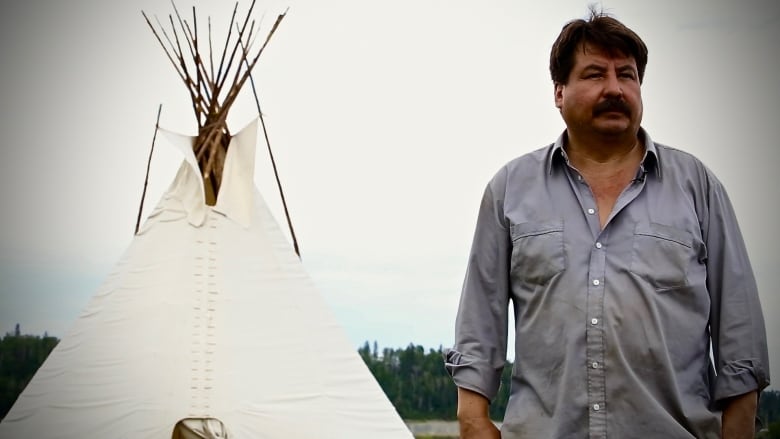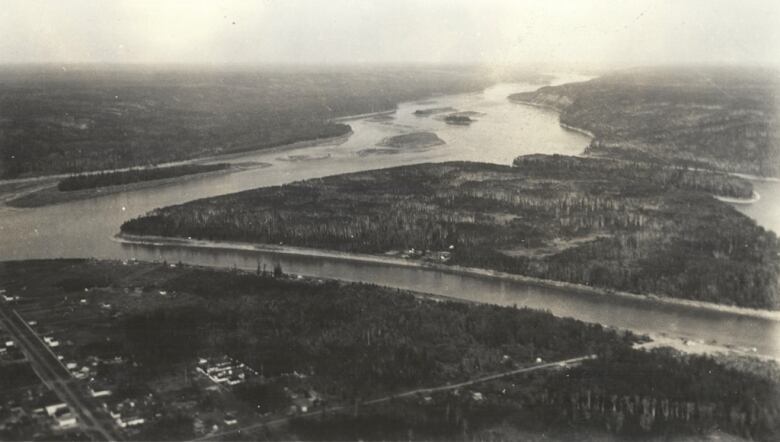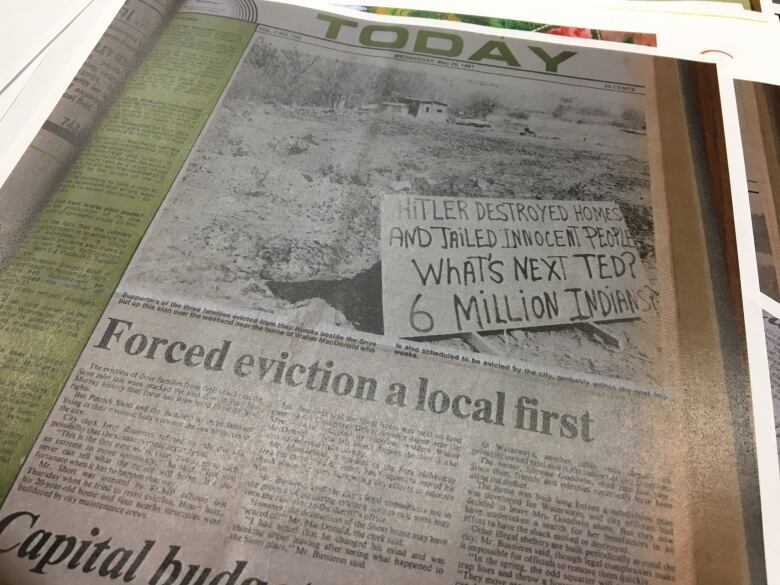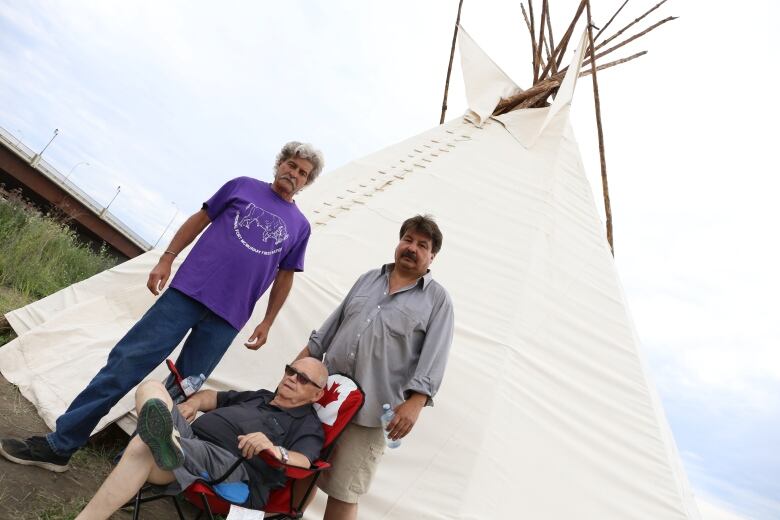Teepee-raising protests forced removal of Indigenous families in Fort McMurray
'I want Canadians to see the truth about their Canadian government and how they treat us'

During the height of a heat wave, John Malcolm tries unsuccessfully to keep cool in the shade of his teepee in downtown Fort McMurray.
Malcolm is living in a teepee he erected Sunday in protest over the removal of 12 Indigenous families from the Moccasin Flats settlement on the banks of the Athabasca River in the late 1970s and early 1980s to accommodate urban development.
Moccasin Flats is where Malcolm grew up.
"This is my land. This is where I am from."
When his family members were removed from the land, they received no compensation as his grandmother had lost her Indian status after marrying a white man.
He is demanding the former residents receive an apology, compensation andtreaty status.

"In Canada there is no honour when it comes to us," Malcolm said. "I want Canadians to see the truth about their Canadian government and how they treat us."
Moccasin Flats was a base for First Nations and Mtis families who lived part of the year on the outskirts of town and part out on the land hunting and walking trap lines.
Today the site is home to the River Park Glen apartment complex, better known as Syncrude Towers, a recreation centre and a low-lying stretch of land thousands of Fort McMurray residents walk or drive past every day.

Malcolm is hoping his protest will enlighten those residents about what happened at Moccasin Flats.
He also hopes to reach the prime minister, who holds the power to grant First Nation treaty status to him and others.
"We need redress for the wrongs that have been done to us and recognition that we are Indians," Malcolm said.
"We are from here and we should have our treaty rights enforced which includes lands, housing and mineral rights and the rights to harvest our food and our medicines."
He launched a similar demonstration in 2007, living in a teepee for a week, but doesn't know when he will end his current "silent protest."

In April, the Fort McMurray Mtis local commissioned an academic study of the removal.
It will determine how many families were evicted, the circumstances of the evictions, who was responsible, and what happened to those removed.
The province told CBC in April itwill review itsroles in the removal.
Wood Buffalo municipality's Mayor Don Scott said within weeksadministration will present a report detailing its role in the removal of the families and discuss with council the next steps in dealing with the issue.
"It's going to be a big deal for the region," Scott said. "It is really part of this region's obligations under the Truth and Reconciliation Commission."
As forSyncrude, who developed the land through one of its companies,spokespersonWill Gibson said to his knowledge the oil company hadno role selecting the location for its apartment complex.
Elder James Grant, who calls himself a member of the Original Fort McMurrayFirst Nation, fears justice will come too late if at all.
"We are Treaty Indians. They just don't want to believe us," said Grant, 75. "I might not be around to see it. But I hope it changes."
- MORE FORTMcMURRAYNEWS:Audit reveals weaknesses in Wood Buffalo's contracting procedure
- MORE FORTMcMURRAYNEWS:'Smells like strong cat pee': Smartphone app tracks oilsands odour complaints
- MORE FORTMcMURRAYNEWS:Fort McMurray airport suing insurer for $34M over losses in wildfire
Connect with David Thurton, CBC'sFort McMurraycorrespondent, onFacebook,Twitter,LinkedInor email him atdavid.thurton@cbc.ca














_(720p).jpg)


 OFFICIAL HD MUSIC VIDEO.jpg)
.jpg)



























































































